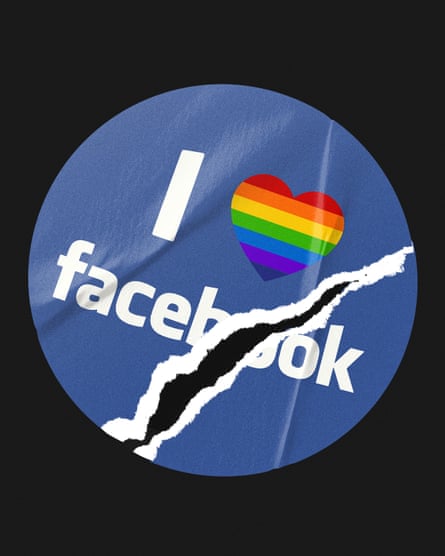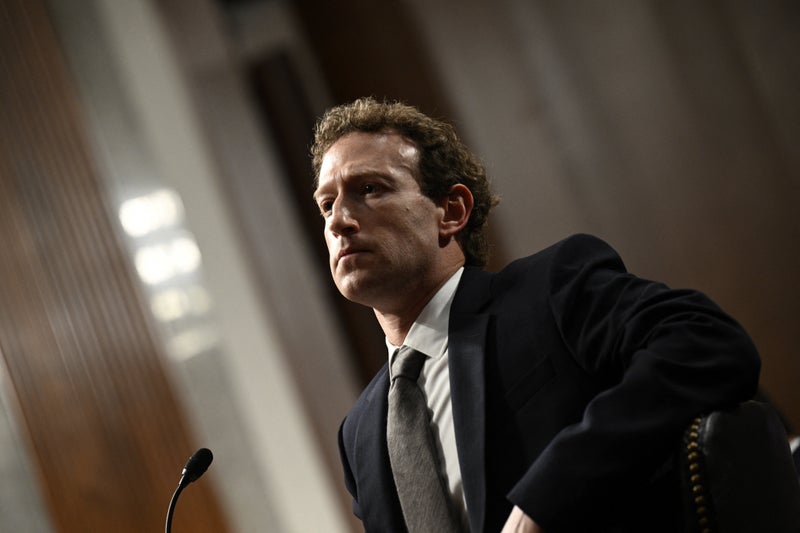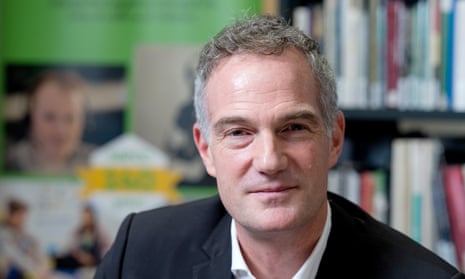Zuckerberg’s company once invested millions and attracted top talent as tech’s leader in corporate diversity. Those aspirations peaked in 2019 and just a few years later, Meta scuttled them altogether. In 2019, Facebook set a goal for itself: ensure half of its workforce was from diverse or underrepresented backgrounds by 2024. The lofty ambition made the company stand out among its Silicon Valley peers. Maxine Williams, a longtime employee and chief diversity officer at the time, wrote in a 2021 blog post that Facebook was up to the challenge.
![[a man in a black T-shirt smiles and points ahead]](https://i.guim.co.uk/img/media/9610b79f48f638d10242322f43f22e9f0a83574f/0_0_3230_2662/master/3230.jpg?width=445&dpr=1&s=none&crop=none)
“We’ll keep working toward these goals regardless of whether we’re able to meet them within five years because progress in representation is critical to serve a global audience,” wrote Williams. By 2022, the company said it had doubled its number of Black and Hispanic employees in the US, and women accounted for more than a third of its workforce globally. There was still work to be done, though. Even after that increase, Black workers only made up 4.9% of the overall US workforce, and Hispanic workers made up 6.7%.
![[three men smiling, wearing Facebook pride gear]](https://i.guim.co.uk/img/media/108f24f775569bb5cef0f17ebb2060e385088465/0_0_600_600/master/600.jpg?width=445&dpr=1&s=none&crop=none)
But, as of 10 January, 2025, the vast majority of that work has been summarily abandoned. Just days after 2024 had come and gone, Meta (now Facebook’s parent company) announced that instead of forging ahead with diversity goals, it would do away with corporate inclusion efforts entirely. The diversity, equity and inclusion (DEI) programs would be shuttered. The company would end “representation goals”. Williams would be relegated to a new role focused on accessibility and engagement.
“The term ‘DEI’ has … become charged, in part because it is understood by some as a practice that suggests preferential treatment of some groups over others,” wrote Janelle Gale, the company’s vice-president of human resources, in an internal memo. The diktat came directly from Meta’s CEO, Mark Zuckerberg. Those changes didn’t come in a vacuum. Earlier this month, Zuckerberg announced Meta was ending its factchecking program in the US and easing content restrictions around immigration and gender identity to focus on “free expression”. Meta’s “hateful conduct” policy was changed to allow users to accuse transgender or gay people of being “mentally ill”.
Zuckerberg himself has also undergone a transformation from the sweaty, gray-hoodie-clad boy of Facebook’s early years. He wears a gold chain and practices mixed martial arts, exuding what he calls “masculine energy”, which he now preaches American companies need more of. He sat prominently alongside other tech billionaires at Donald Trump’s inauguration. The day after Zuckerberg ended Meta’s DEI programs, Trump issued a similar executive order for the federal government.
It’s a far cry from the Zuckerberg who once banned Trump from Facebook, founded an organization to help immigrants and marched in a Pride parade. And a steep change for a company that was considered the gold standard for diversity and inclusion work in Silicon Valley. “Facebook used to be the place to be if you wanted to work on diversity,” said a former recruiter on the DEI team, who asked not to be named for fear of professional reprisal. “Everyone wanted to work with Maxine Williams. Everyone wanted to follow what Facebook was doing. We were the leaders in this.”.
Seven former Facebook employees who worked on the company’s DEI and trust and safety teams say the shift had been a long time in the making. As Zuckerberg’s priorities have shifted with political winds, the company’s emphasis on diversity and other policies have followed suit, they said. The former employees said it was never clear how personally invested Zuckerberg was in making Meta a more inclusive workplace. Many of the initiatives lacked substance because they were often rolled out in response to external pressure or specific events, including the murder of George Floyd, according to the employees. These efforts rarely went beyond company-wide pronouncements and did little to change or improve the recruitment or retention of employees from under-represented backgrounds.
Some initiatives did make a meaningful difference, such as the diverse slate program that ensured qualified women and people from underrepresented backgrounds were considered for open roles. But former employees say executives slowly chipped away at those when they stopped being convenient. The decline of diversity goals at Meta began in earnest with the departure of chief operating officer Sheryl Sandberg, many of the former employees said. She resigned as the company’s second-in-command in 2022 and stepped down from the board in 2024; Dana White, the Ultimate Fighting Championship CEO, replaced her.
The stark contrast between the two illustrates Meta’s about-face. Sandberg authored Lean In, considered by many the playbook for feminism in the workplace, while White leads the Maga movement’s ultra-masculine de facto sports league and was filmed slapping his wife at a party in 2022. Former employees say Sandberg’s exit was a signal that DEI goals would be deprioritized, especially if left to Zuckerberg. The Facebook founder shares his ex-employees’ opinion; he told Trump adviser Stephen Miller that Meta’s culture of inclusivity was the result of Sandberg’s efforts, according to the New York Times.






















